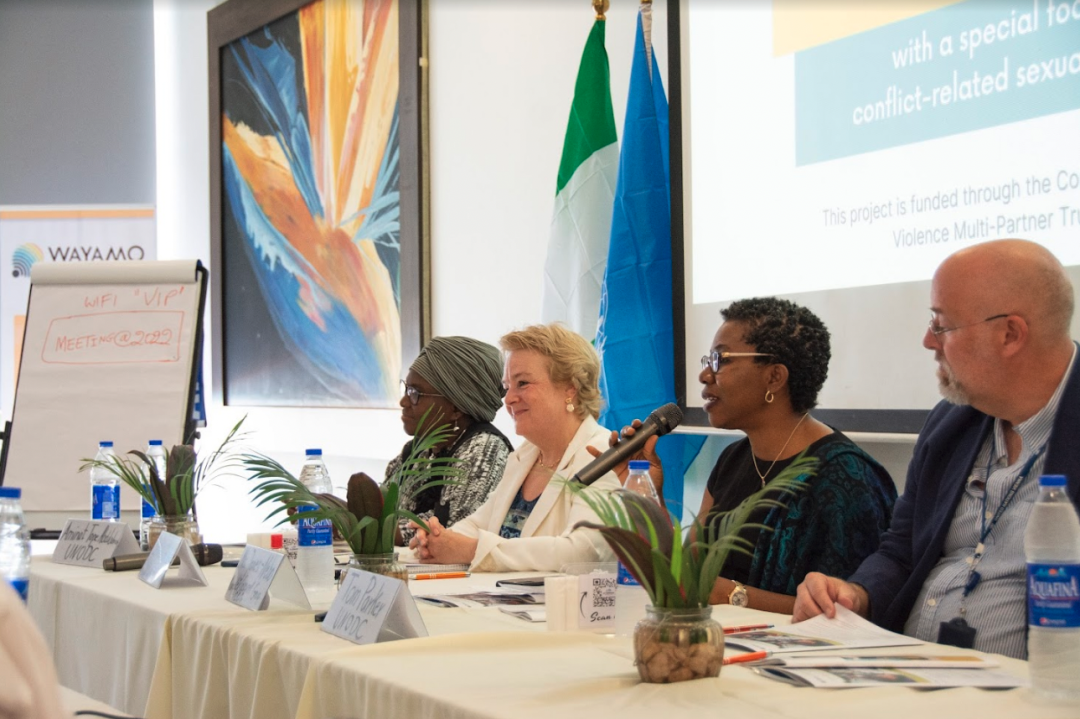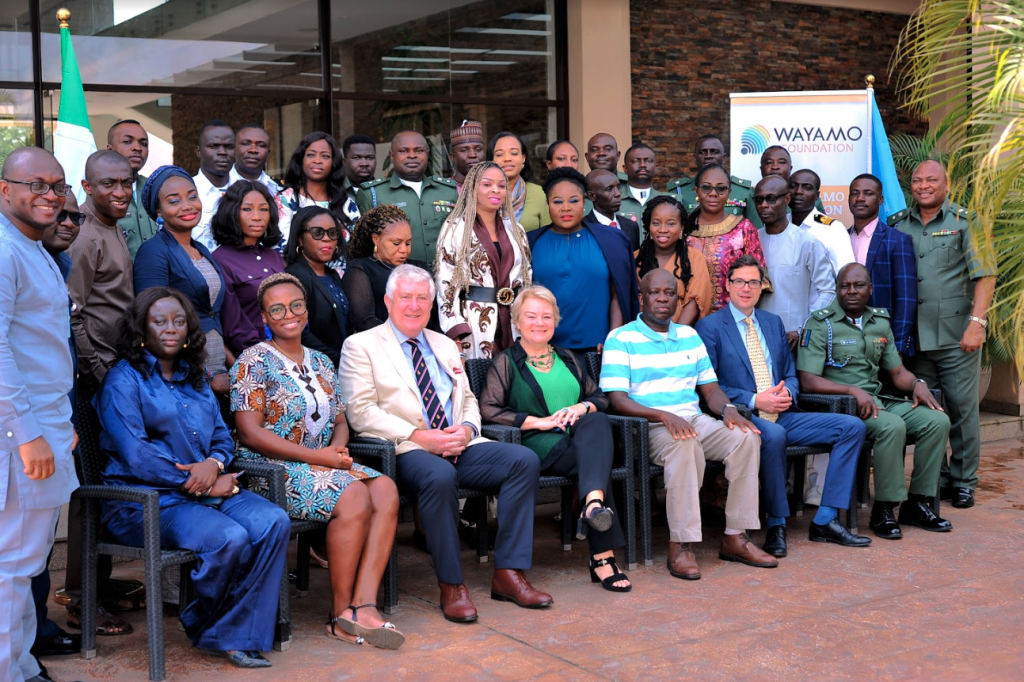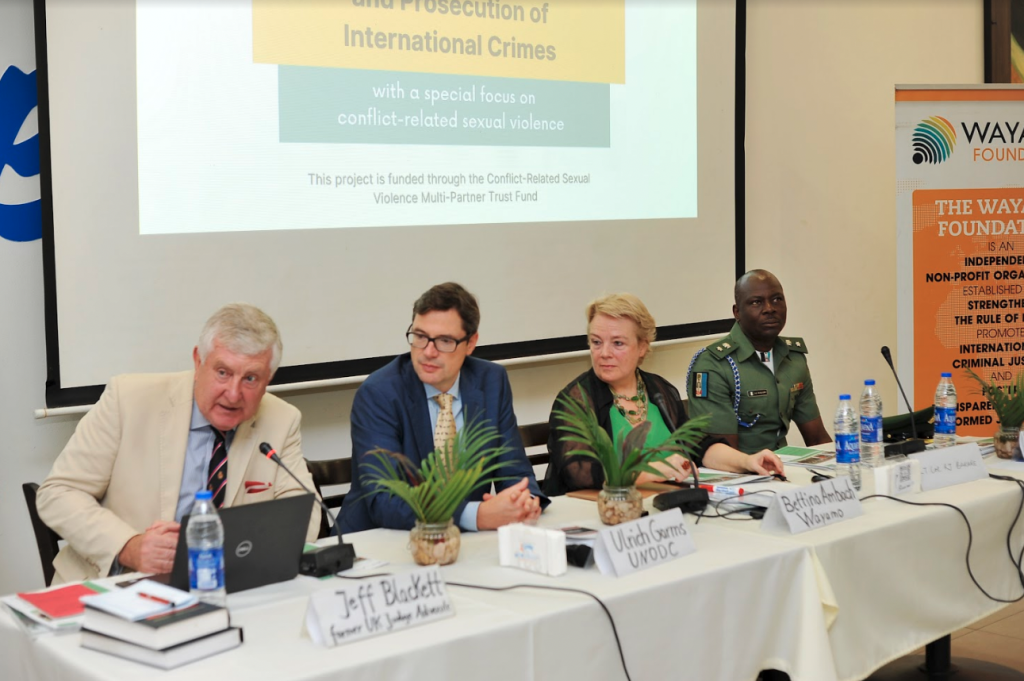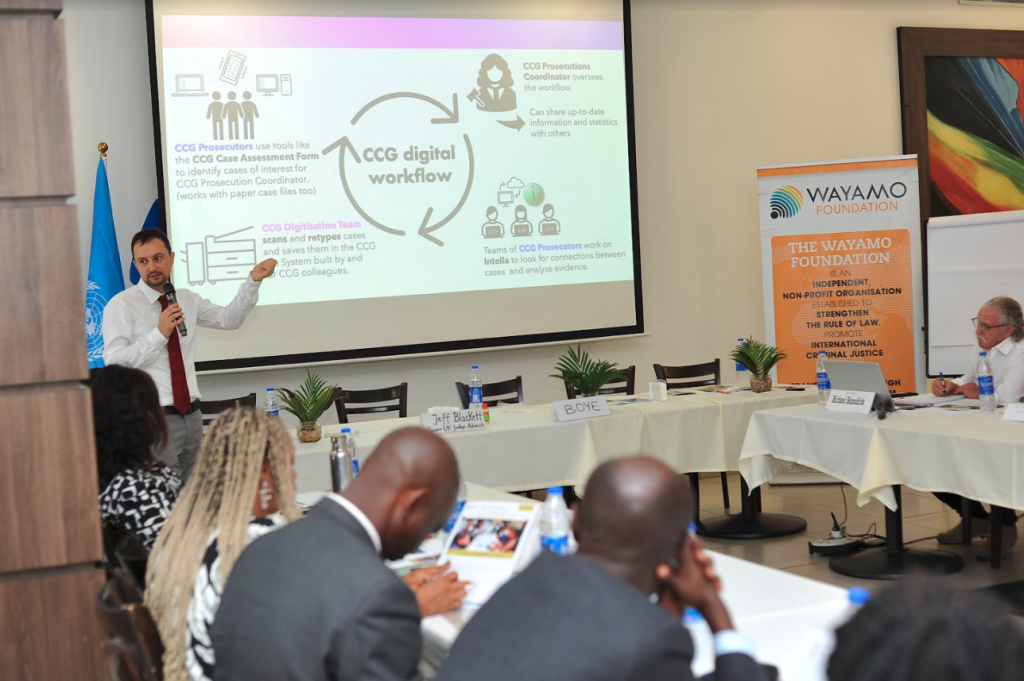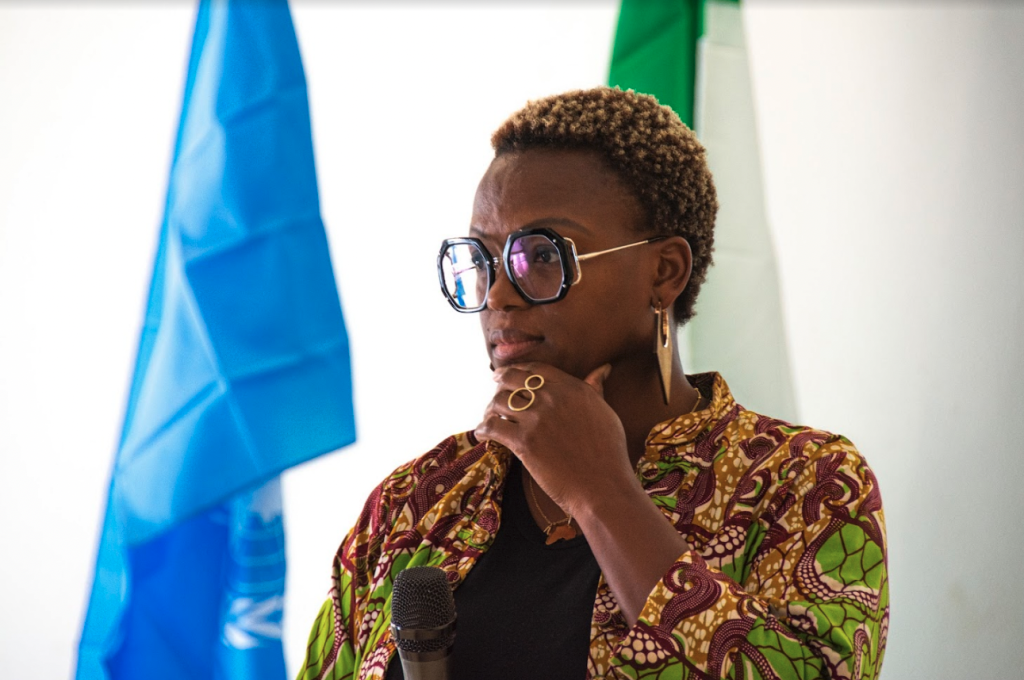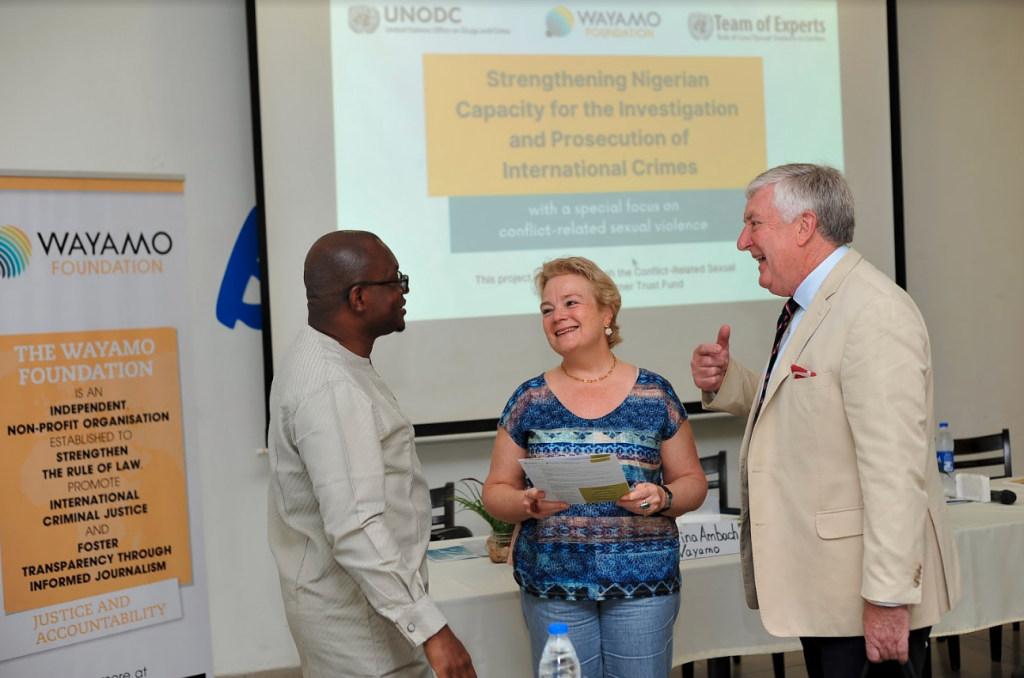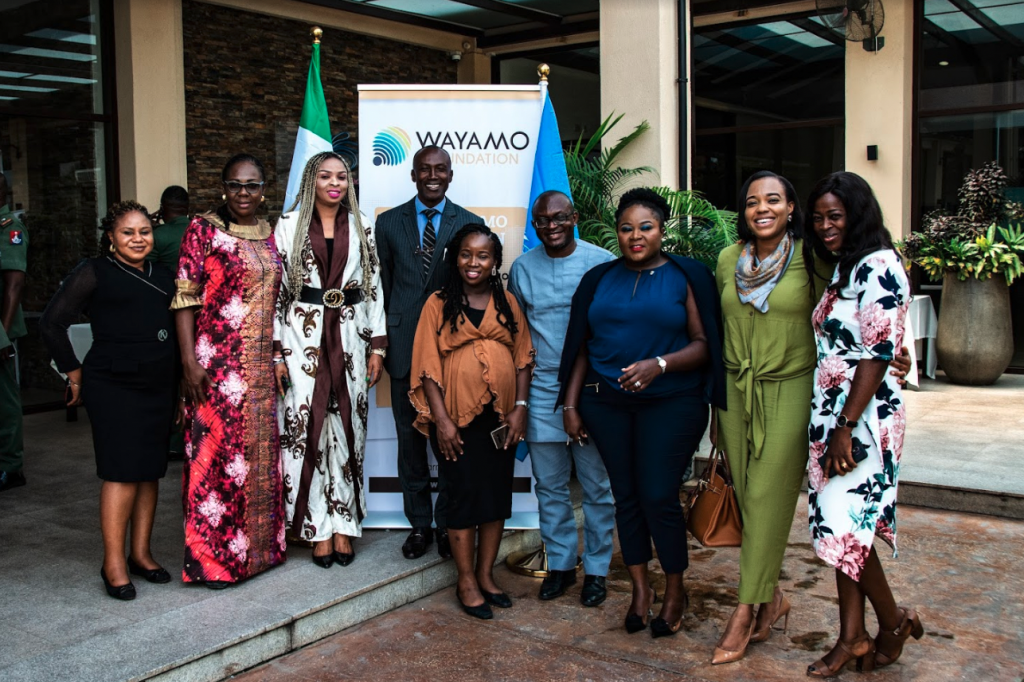Strengthening Nigerian Capacity for the Investigation and Prosecution of International Crimes with a special focus on conflict-related sexual violence
17 –21 October 2022, Abuja, Nigeria
Building on the formula so successfully applied at the previous Abuja training session in November 2021, the Wayamo Foundation, working for the first time in close partnership with the United Nations Team of Experts on the Rule of Law and Sexual Violence in Conflict and the United Nations Office on Drugs and Crime (UNODC), held two back-to-back workshops in Abuja (see photo album). The two workshops were purpose-designed to overlap on the middle day, Wednesday 19 October, when both groups, the one civilian the other military, came together to attend a joint session, discuss matters of common interest, share experiences, and exchange views about the tasks confronting them in their respective spheres. In effect, this meant that the last day of the civilian workshop doubled as the first day of the military workshop.
The workshops were organised within the framework of the project “Strengthening Nigerian Capacity for the Investigation and Prosecution of International Crimes with a special focus on conflict-related sexual violence”, which are jointly implemented by the United Nations Team of Experts on the Rule of Law and Sexual Violence in Conflict, the United Nations Office on Drugs and Crime (UNODC) and the Wayamo Foundation. These first two training activities will be followed by two further workshops under the project in the following months.
While the first of the two workshops brought together prosecutors from the Complex Casework Group (CCG) and investigators from the Joint Investigation Centre (JIC), the second was entirely military in nature, and centred on the ongoing project of formally establishing a Serious Crimes Response Team (SCRT), a highly specialised unit of military investigators and prosecutors drawn from all three services, who will be specifically trained to investigate and prosecute serious crimes that have allegedly been committed by the Armed Forces and potentially fall under the jurisdiction of the International Criminal Court (ICC). Each group, in its own way and within the constraints of its allotted remit, addressed the selfsame challenge, namely, the “Investigation and prosecution of international crimes with a special focus on conflict-related sexual violence”.
The proceedings were officially opened by Wayamo Foundation Director, Bettina Ambach, UNODC Counterterrorism Programming Project Coordinator, Tom Parker, and CCG Head, Nkiruka Jones-Nebo, appearing on behalf of Mohammed Babadoko Abubakar, Director of Public Prosecutions of the Federation.
The programme fell naturally under three main heads, namely, interagency collaboration, the CCG’s ongoing digitisation and evidence-management process, and the mainstreaming of sexual violence crimes. Over the course of the workshop, these three areas were respectively addressed and tackled from different angles and in different ways by Akingbolahan Adeniran, Jeff Blackett, Ulrich Garms and Tom Parker in the case of interagency collaboration, Akingbolahan Adeniran and Dr. Adejoké Babington-Ashaye in the case of conflict-related sexual violence, and the trio of Kris Kotarski, Raphael George and Rebeka Manneh Juhosová in all things digital.
At times, the trainers adopted the novel approach of acting as a team, either working together or in opposition, with one assuming the role of devil’s advocate. This made for a dynamic, ever shifting scenario that stimulated debate and encouraged interaction with the participants. Furthermore, the introduction of practical group exercises at key points in the day added a change of pace that kept both prosecutors and investigators on their toes.
The effect of the joint session with the military on day three brought yet another aspect into focus, that of international criminal law and the difficulties posed by international criminal investigations. Akingbolahan Adeniran and Dr. Adejoké Babington-Ashaye laid great stress on the obligations involved, and the need to ask the right questions with a view to obtaining the crucial linkage evidence that might ultimately lead to identifying those bearing the greatest responsibility. Much discussion was devoted to two points of contention: firstly, the frustrations stemming from the inherent unfairness of warfare, where one side is bound by the rules and the other is not; and secondly, the need to respond to what the participants perceive as vague allegations at best and unfounded allegations at worst. Citing the United Kingdom’s successful experience of handling such allegations in the case of Iraq, Jeff Blackett lent his voice to that of the others in the room to underscore the crucial importance of Nigeria’s meeting its international obligations, carrying out the necessary investigations, and communicating this to the ICC.
As always, the workshops ended with an evaluation of training by the participants. Some of the items highlighted by those in the CCG/JIC workshop included:
- “I learnt to think ‘outside the box’ in drafting charges with regard to sexual violence under the Terrorism Prevention Act of 2022.”
- “These sessions have a direct impact on my job”.
- “Our system will get better when we transform our words and wealth of knowledge into ACTION!”.
In the words of the military participants, the following aspects were perceived as being of particular pertinence:
- “All of the sessions were very relevant for us. I didn´t leave my seat for even a moment!”
- “My main ‘take–away’ is that commanders have a responsibility to respond to allegations of serious crimes made against their troops.”
- “The session I liked most was on the requirement of independence in a military justice system because it touches on my routine work as a military lawyer.”
- “An independent military justice system is key to the success of the SCRT!”

